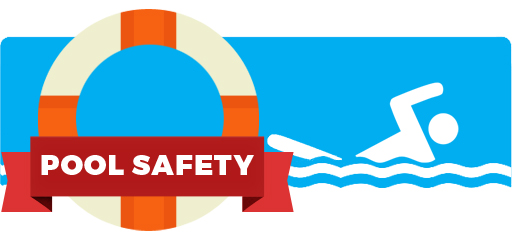What should owners do to ensure the safety of the swimming pool?
Safety at the pool is of paramount importance. When commercial property owners (or their agents) think about the overall safety of the swimming pool environment, they must strive to establish a setting where safety can flourish. It’s the “set up” that matters. Owners can create a safe swimming pool using experience and knowledge about pool safety in general, and also incorporating site specific concerns. The focus of this commentary is on three general areas of concentration; supervision, sanitation and filtration.
We think about supervision in two ways: the lifeguards supervising the patrons and the lifeguards being supervised themselves. The ongoing training/audits of the lifeguards is an important topic worth discussion on its own. Lifeguard training is something the pool owners have little or no control over – this is controlled by the pros. But it is the responsibility of the owners to scrutinize the training protocols and the management plan of the proposing firm before selection. When reviewing the training of the lifeguards, concern with the content of training and the frequency of which it occurs is fundamental. The support the lifeguards receive, after the training, is in the form of ongoing supervisory visits to the site and safety audits. The pool company should be able to provide feedback to owners afterwards. Owners need to take an active role in the success of safety efforts by reviewing the reports and responding to requests. When it comes to lifeguard training, property owners are not the captain of the ship, but they get to choose who steers.
Sanitation and filtration are similar efforts that have a common purpose – they just have different ways of getting it done. Sanitation is making the water clean, filtration is making the water clear. Sanitation is the use of additives to the pool water to kill bacteria and preventing waterborne pathogens. Similar to the use of antibiotics in the treatment of a medical illness, additives to the pool water prevent pathogens. The most common additive to swimming pool water is chlorine. There are several forms of chlorine and variations in the method of delivery. Swimming pool owners need to understand the type of equipment that has been provided and installed at their site so that they understand how to provide the pool water with chlorine. Commonly, commercial pools will use chlorine in a liquid form or a solid form. Both types of chlorine have a mechanical means of delivering the product to the pool water. The equipment and the storage of the bulk chemicals must comply with established health regulations. In the absence of a local health department, industry standards should be followed. Following the rules will directly impact the level of safety at the pool because the chemicals used can be flammable and have significant health risks. Proper storage, handling and use are critically important.
Filtration is easy to understand if you can cook spaghetti. Making the pool water clear is the goal, and the safe results are obvious – parents and other patrons can simply see what’s going on below the surface, clearly. Filtration of pool water is the process of removing any solids from the liquid. The solids in pool water are removed when they are suspended within the pool water, which is then passed through a filter. Filters must operate within their manufacturers recommended design limits. Filters which are being operated where the tank pressure is too high can be dangerous. If the rate of the water passing through the filter exceeds the recommend flow, the equipment can be damaged. All in all, the equipment needs to be operating as it was designed; to be sure the water is clear at all times. Owners need to understand and embrace a policy that if the water is not clear, then the pool is closed to swimmers. This may be an unpopular decision, but when lives are at stake, it’s a no-brainer.
Filtration is easy to understand if you can cook spaghetti.
The safety of the swimming pool environment is essential, whether it is a public, semi-public or private pool. The experience of the pool users, regardless of age, is enhanced when the property owners understand the benefit of safe surroundings. It starts with the owners creating a safe swimming pool by taking advantage of knowledge about pool safety and enlisting the experience of a principled firm. When owners understand the need for proper supervision, filtration and sanitation; the goal of a safe pool environment is accomplished.
